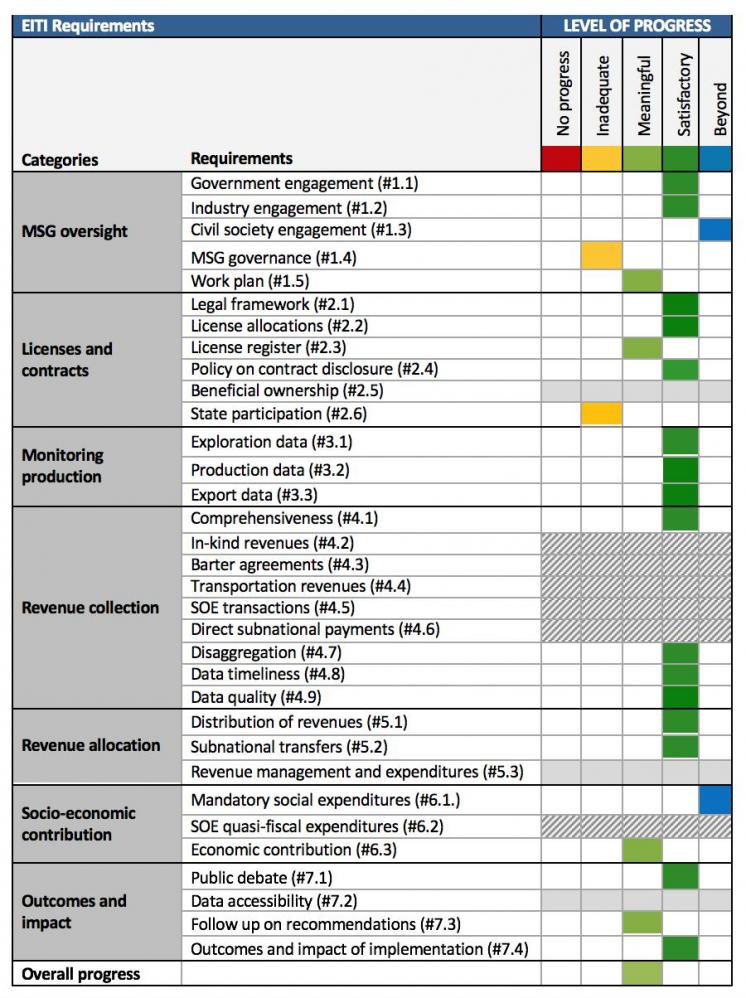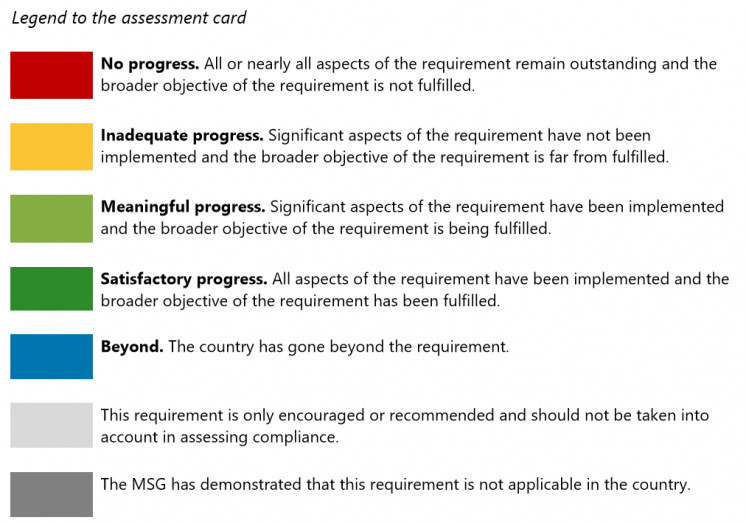
Burkina Faso declared to have made meaningful progress with EITI Standard
Burkina Faso declared to have made meaningful progress with EITI Standard
The Board welcomed the resilience of EITI implementation in a context of political change
13 February 2018 - The international EITI Board today recognised Burkina Faso’s efforts to improve natural resource governance through the EITI Standard. The Board concluded that the country had made meaningful progress in meeting the EITI requirements. The Board welcomed recent reforms to improve the governance of the sector through better reporting and stronger oversight over the redistribution of revenues to local communities.
Fredrik Reinfeldt, Chair of the EITI, said:
“The government of Burkina Faso’s commitment and success in achieving transparency in the extractive sector in a period of political turmoil is admirable. I hope that the government will continue to publish this data in its own systems rather than in standalone reports.”
Resilience
Burkina Faso published its 2015 EITI Report on 30 March 2017 and the country’s Validation began on 1 April 2017. Validation is the EITI’s independent evaluation mechanism.
EITI implementation in Burkina Faso has proved resilient in the context of the 2014 uprising and the subsequent democratic transition.
It is notable how Burkina Faso has gradually expanded its EITI reporting in response to demand for more information, including on sub-national payments and local content. The Board encouraged the government to explore opportunities to open EITI data by working closely with the Burkina Faso Open data initiative. This Initiative, one of Burkina Faso’s main objectives in its first Open Government Partnership Action Plan, aims to open public sector data. It can play a role in supporting Burkina Faso’s efforts to establish regular and systematic disclosures of EITI data.
Civil society helping to drive the process
The EITI Board recognised Burkina Faso’s efforts to go beyond the minimum requirement on civil society engagement. Civil society in the country not only participated fully, actively and effectively in the EITI process. It also actively promoted public debate, helping shape government policy and leads EITI implementation at the subnational level.
The Board also noted that Burkina Faso had gone beyond the minimum requirement by disclosing voluntary social expenditures of mining companies.
Room for improvement
While the Government of Burkina Faso has taken steps to address all the requirements of the EITI Standard, there is still room for improvement. Further efforts are needed, including on clarifying the State’s participation in the sector and in addressing gaps in MSG governance. In addition, there is potential to make progress on contract transparency with both government and companies willing to disclose, if given the tools and framework to do so.
The EITI Board decided on a set of corrective actions that Burkina Faso is required to address to meet all the requirements of the EITI Standard.


Notes
- Validation is the EITI’s independent evaluation mechanism. It assesses countries against progress made in meeting the 2016 Standard.
- See the interactive Validation scorecard for Burkina Faso here.
- See Burkina Faso's country page here.
- See documentation for the Validation here.
Related content





